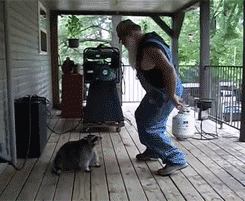Some more of my favorite passages from the book:
"One consequence of isolation is seeing standard metrics of success as not just unobtainable, but as a property of people 'not like us.'"
"It’s not just our own communities that enforce the “outsider” attitude. It’s the places and people that upward mobility connects us with. Social mobility isn’t just about money and economics. It’s about a lifestyle change. The wealthy and powerful aren’t just wealthy and powerful. They follow a different set of norms and mores. When you go from working class to professional class, almost everything about your old life becomes unfashionable at best, or unhealthy at worst."
And finally, a part that I'm surprised didn't get more attention here:
"The president [Obama] feels like an alien to many Middletonians for other reasons that have nothing to do with skin color. None of my classmates attended an Ivy League school; Barack Obama attended 2 and excelled at both. He’s brilliant, wealthy, and speaks like a constitutional law professor, because of course he is one. Nothing about him bears any resemblance to the people I admired growing up: his accent clean, perfect, neutral is foreign; his credentials are so impressive that they are frightening; he made his life in Chicago, a dense Metropolis, and he conducts himself with a confidence that comes from knowing that the modern American meritocracy was built for him. Of course he overcame much in his life, but that was before any of us knew him. President Obama came onto the scene right as a lot of people in my home town were realizing that the meritocracy wasn’t working for them. We know we’re not doing well. Obama strikes at the heart of our deepest insecurities. He is a good father while many of us aren’t. He wears suits to his jobs while we wear overalls, if we’re lucky enough to have jobs at all. His wife says we should be feeding our children certain foods, and we hate her for it, not because we think she’s wrong, but because we know she’s right."
And in a separate interview, post-election, Vance added:
"There is an arrogance to Obama’s demeanor, he adds, that makes him especially difficult to relate to. “He talks in a way that a professor talks, he talks in a way that you sort of aspire to talk if you’re a young law student. Trump talks like a guy at a bar in West Virginia. Trump talks like my dad sitting around the dinner table.”
If you haven't read the book, he really doesn't force a lot of his own philosophy or opinion. He's mostly just describing the way it is in all of these abandoned, old factory towns. The part about Obama is also spoken in first person, but again, it's not his personal beliefs; simply a description of how Appalachia viewed/views Obama.
Also, it is a little confusing to me that apparently people genuinely want their drunk uncle, or that rando you overhear at the bar leading the country.

